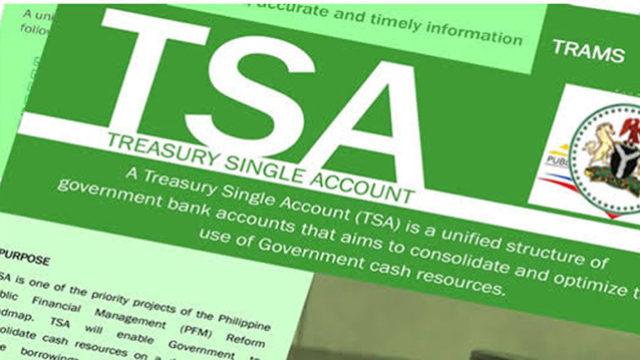The Federal Government has said its recently enforced Integration Personnel and Payroll Information System (IPPIS) has helped uncovered 70,000 ghost workers in the civil service system.
Dr. Dasuki Arabi, the Director-General, Bureau of Public Service Reforms, stated at the 43rd session of the ministerial briefing organised by the Presidential Communication Team at the Presidential Villa, Abuja on Thursday.
According to the Director-General, the Federal Government has saved at least N220 billion through IPPIS and about N10 trillion via the Treasury Single Account (TSA) since it was fully implemented by President Muhammadu Buhari.
Explaining the advantages of IPPIS, Arabi said the Federal Government can now give an account of the total Federal Civil Service personnel working in the country. He puts the total at 720,000 as of today.
Arabi said, “With the introduction of IPPIS, about 70,000 ghost workers have been eliminated from the payroll. We have a one-shot opportunity to look at IPPIS and say, as of today, we have 720,000 public servants working for Nigeria.
“We’ve been able to reduce more than N220bn wastage through wrong management of IPPIS on payroll by ministries, departments and agencies of government. We have reduced the budget deficits and changed the budget composition.
“We have succeeded in getting the Treasury Single Account deployed in all ministries, departments and agencies of government. Challenges have come in that implementation at the initial stage, but we are overcoming that and the government is able to save over N10tn over the years because whatever you’re generating now goes into a Treasury Single Account that is managed by somebody else, not you.
“And the government, especially at the top, is always able to see what has come into our Treasury Single Account today and what has gone out of that. So planning has been simplified. Budgeting has been simplified.”
The Integrated Financial Management Information System digitised government business and “reduced man-to-man contact and processing payments in ministries, departments and agencies.”
He said, “Transparency has been improved. A lot of things are done even outside the office. But the most important thing is the ability given to central agencies, the Office of the Accountant-General of the Federation, and the Ministry of Finance to see what is happening in all government MDAs because GIFMIS is not controlled by the agencies.
“It is controlled by the central agencies, but every activity you are doing under GIFMIS somebody is watching you and is monitoring that activity. This is a great achievement for us and for all of you and for all Nigerians.”

 Forex3 weeks ago
Forex3 weeks ago


 Naira2 weeks ago
Naira2 weeks ago
 Billionaire Watch2 weeks ago
Billionaire Watch2 weeks ago




 Naira2 weeks ago
Naira2 weeks ago




 Naira2 weeks ago
Naira2 weeks ago




 Naira1 week ago
Naira1 week ago




 Naira4 weeks ago
Naira4 weeks ago




 Naira3 weeks ago
Naira3 weeks ago






















